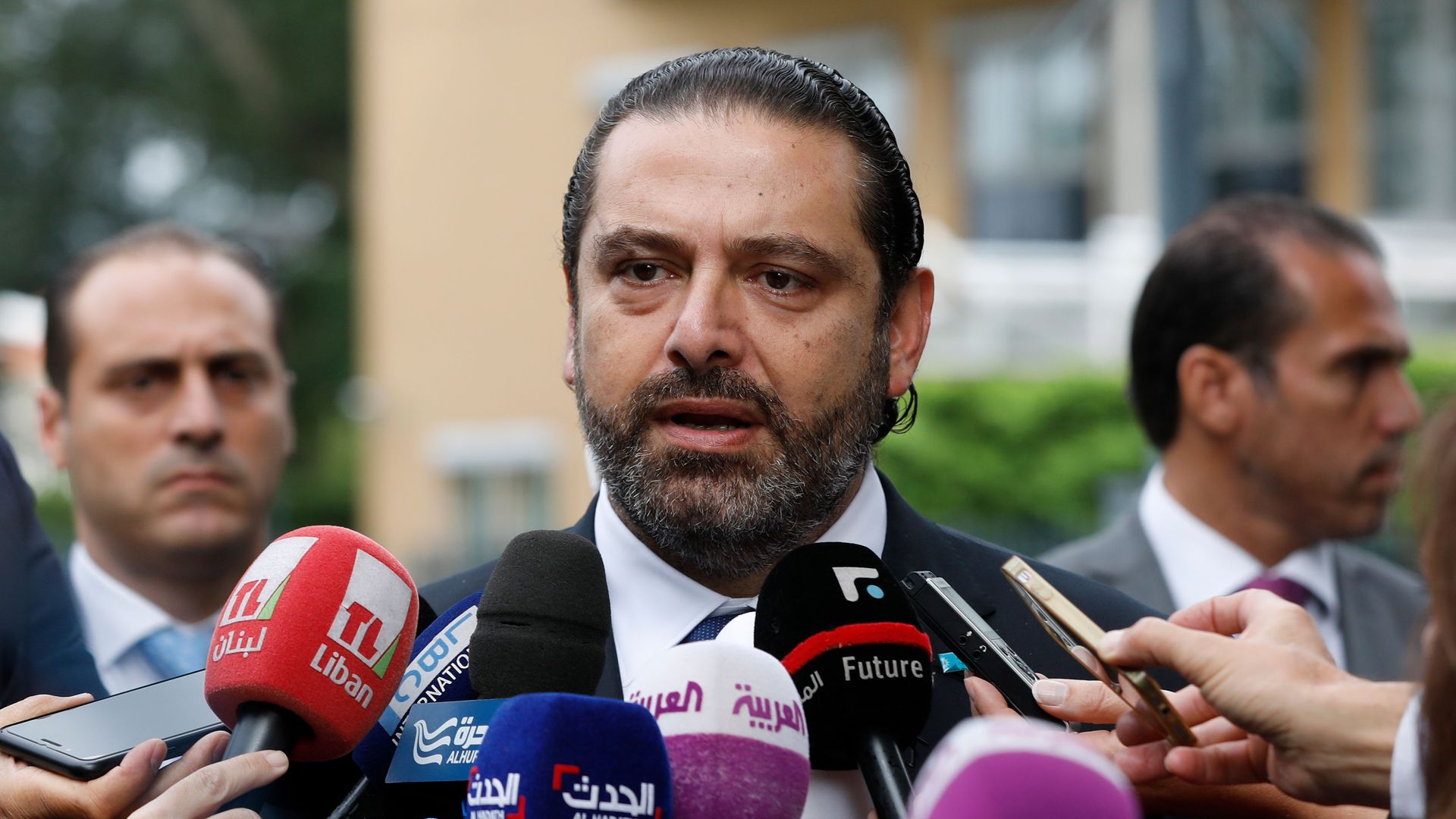
Lebanese Prime Minister Saad Hariri in front of the Special Tribunal for Lebanon on Sept. 10, 2018, in The Hague. Photo: Bas Czerwinski/AFP via Getty Images
A 9-month political deadlock over the formation of Lebanon's new government has ended, resulting in a Cabinet in which Iran-backed Hezbollah has greater influence. The announced power-sharing agreement is unsurprising given Hezbollah’s strong electoral performance last May, when the predominantly Shiite organization and its allies seized the parliamentary majority from a loose coalition favored by the U.S. and led by returning Prime Minister Saad Hariri.
The big picture: While U.S. allies in Lebanon were able to impede Hezbollah’s ascendency through protracted negotiations, Hezbollah and its allies now control two-thirds of all key government ministries, with the militant group making further inroads into non-Shiite communities. Hezbollah is firmly entrenched in the Lebanese body politic and has grown into a regionwide fighting force on behalf of Iran, undercutting U.S. efforts to roll back Iranian influence.
Background: The Trump administration hopes its economic strategy of squeezing Iran and its allies, which kicked into high gear last November, will allow it to renegotiate the Iran nuclear deal and limit that country’s regional sphere of influence. In Lebanon, however, this remains unlikely owing to Hezbollah’s increasing ability to hide behind legitimate state institutions and benefit from their resources.
In an apparent effort to blunt the impact of recently enacted U.S. sanctions on its finances, Hezbollah also secured a “service ministry” for the first time. Its control over Lebanon’s Ministry of Health, with an annual budget exceeding $469 million, could help ease the group’s financial pinch by allowing it to provide patronage at government expense.
Reality check: If Trump intends to aggressively pursue Hezbollah’s pocketbook, he will need to make hard decisions that could imperil Lebanon’s fragile political and financial stability, reversing a policy that prioritized containing the fallout from the war in Syria. This would entail scaling back military cooperation that the Pentagon deems important for the war against the Islamic State, or ISIS, and al-Qaeda, ending humanitarian assistance meant to alleviate the burden of hosting millions of Syrian refugees, and slapping sanctions against a good portion of Lebanon’s political elite for enabling Hezbollah.
The bottom line: If near-term stability in an otherwise turbulent region remains paramount, then the solution to the U.S.' Hezbollah problem will have to wait for a potential understanding with Iran.
Firas Maksad is the director of Arabia Foundation, a Washington think tank. He is also adjunct professor at George Washington University’s Elliott School for International Affairs.
